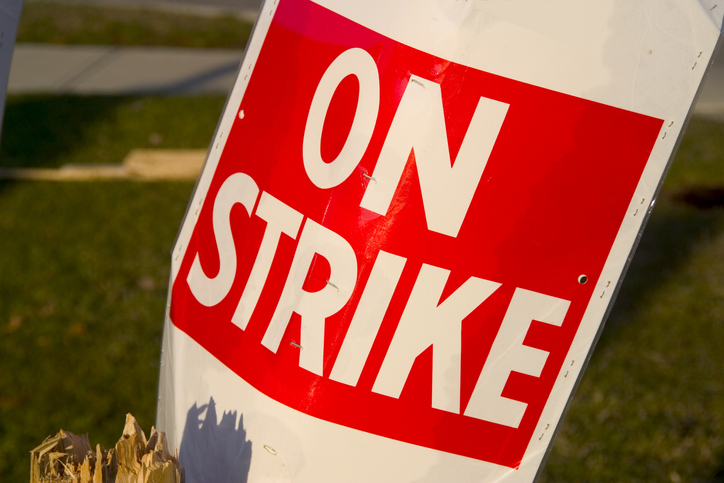

News
Labour Relations
All Ontario teachers to strike on Feb. 21, leaving workers with children scrambling
By Allison Jones/The Canadian Press
 (Getty Images)
(Getty Images) Public schools across Ontario will be closed Feb. 21 as elementary, secondary, Catholic and French teachers banded together Wednesday to announce a joint strike in a bid to ramp up pressure on Premier Doug Ford’s government with contract negotiations at a near standstill.
The one-day job action will leave more than two million students out of class.
“What you’re seeing here is a show of unity between all of us,” said Harvey Bischof, president of the Ontario Secondary School Teachers’ Federation. “The different things on the table hardly matter in the face of a government that wants to slash fundamental supports for all of our students and that’s why we’re prepared to stand up together.”
First time since 1997 all teachers will walk
he unions announced the job action — the first since 1997 that will see teachers and support workers from all major unions go on strike on the same day — just before Education Minister Stephen Lecce took the stage at a downtown Toronto hotel for a planned talk about preparing students for jobs of the future.
He addressed the escalating job action at the start of his moderated chat, calling it an “irresponsible choice.”
“It’s time to get a deal,” he said to the audience that included all four union leaders. “The students of this province deserve to be in class.”
Elementary Teachers’ Federation of Ontario president Sam Hammond — who shouted “not true” while Lecce was speaking — said he was proud to stand with his colleagues from other unions.
“We have been together in this fight since day one,” he said. “Our members have been supporting our colleagues on their lines. We’re just at a point where this has become a fight and we need to step forward in a different way together and we’re doing that.”
Outside the event, hundreds of protesting teachers filled the sidewalk in front of the hotel, stretching nearly the entire block. They held signs criticizing the government’s plan to increase class sizes and calling for Lecce to be fired.
Nearly 200,000 teachers represented by the four unions — ETFO, OSSTF, the Ontario English Catholic Teachers’ Association and the Association des enseignantes et des enseignants franco-ontariens — will take part in the one-day strike next week.
Teachers across the province, who have been without a contract since August, have been holding rotating strikes and other job actions in an attempt to force the Progressive Conservative government to reach a deal.
Slow progress at table
Bargaining over the last several months appears to have yielded little progress. High school teachers have not been at the table since Dec. 16. Elementary teachers said they were close to a deal recently, but the government changed several positions — to ones that were untenable for the union — at the last minute. French teachers were in talks Wednesday, but union president Remi Sabourin was not optimistic.
“Things are stalling,” he said.
A Ministry of Labour mediator has been involved in bargaining with the unions, but Lecce has been calling on them to accept private mediation. He said it helped the government reach a deal last year with education support staff represented by the Canadian Union of Public Employees, though he didn’t articulate why one mediation process is preferable to the other.
“There is an option, a viable mechanism — an independent mediator that can help us drive the parties to an outcome that is defensible for all the students of this province,” he said. “Private mediation is a fair process to get a deal. To be quite frank, with CUPE when we reached a similar impasse…we invoked private mediation and it worked.”
Secondary teachers are upset about increases to class sizes and mandatory e-learning requirements. Elementary teachers say their key issues include guaranteeing the future of full-day kindergarten, more funding to hire special education teachers, and teacher hiring rules.
All of the unions are also asking for around two per cent in annual salary increases, while the government won’t budge beyond offering one per cent. It passed legislation last year capping wage hikes for all public sector workers at one per cent for three years. The teachers’ unions and several others are fighting the law in court, arguing it infringes on collective bargaining rights.
Print this page